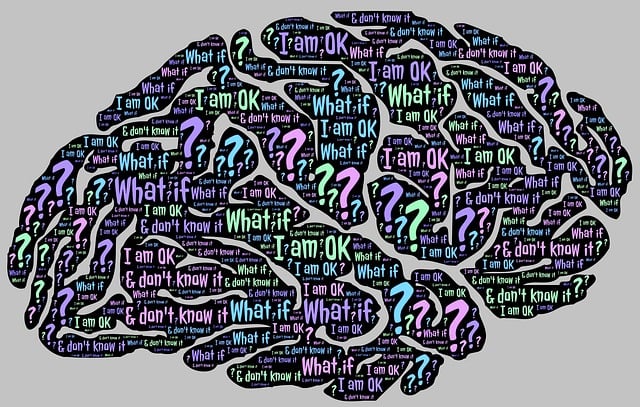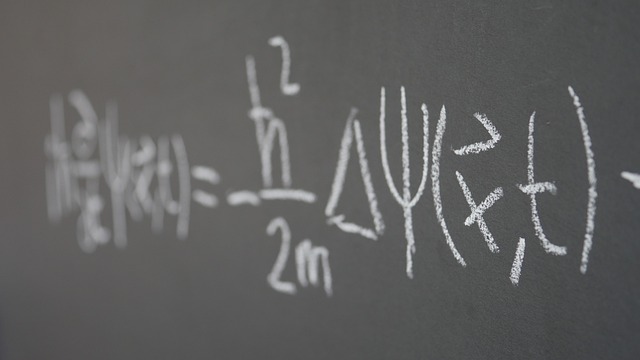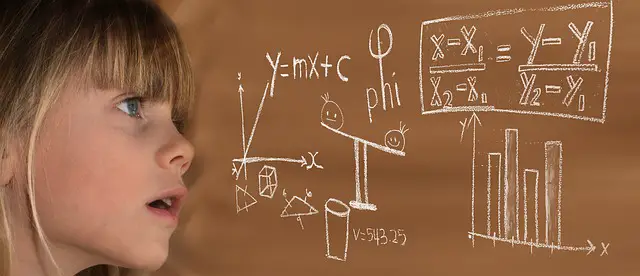A hypothetical statement is based on assumptions while a theoretical statement is based on facts. Hypothetical statements can be proven or disproven through experimentation whereas theoretical statements are supported by evidence that has already been established. In either case, it’s important to remember that both types of statements are valuable tools for advancing knowledge and understanding in specific fields of study.
What is hypothetical?
(Image by John Hain from Pixabay )

In general, the term “hypothetical” refers to something that is based on a hypothesis or assumption rather than on facts or evidence. It is a term that is often used in discussions of theoretical or speculative ideas.
For example, a hypothetical situation might be described as one that is imagined or assumed to exist in order to explore different scenarios or possibilities. Similarly, a hypothetical argument might be one that is based on a hypothetical scenario or set of assumptions, rather than on concrete evidence or established facts.
In scientific and academic contexts, the term “hypothetical” often refers to a theoretical concept or explanation that has not yet been fully tested or proven, but that is used to generate hypotheses and guide further research. In this sense, a hypothetical model or theory might be seen as a starting point for scientific inquiry, rather than a definitive answer to a particular question or problem.
What is theoretical?
(Image by jakob5200 from Pixabay )

The term “theoretical” generally refers to something that is based on theory or speculation rather than on direct observation or practical experience.
In science and academia, theoretical concepts are often used to explain or predict phenomena that cannot be directly observed or tested. Theoretical models and hypotheses are developed based on existing knowledge and data, and are used to make predictions or suggest new avenues of research.
In contrast to empirical or experimental research, which involves direct observation and measurement of real-world phenomena, theoretical research often involves the development of mathematical or conceptual models that can be used to test hypotheses and make predictions. For example, in physics, theoretical models are used to explain the behavior of particles and forces that cannot be directly observed, while in economics, theoretical models are used to explore the behavior of markets and the factors that drive economic growth.
While theoretical research can be highly valuable in advancing our understanding of complex systems and phenomena, it is important to recognize that theoretical concepts and models are always subject to revision and refinement as new data and evidence become available. Therefore, theoretical research should always be seen as a work in progress, rather than a definitive answer to a particular question or problem.
The difference between hypothetical and theoretical
In the world of scientific research, there is a big difference between hypothetical and theoretical. A hypothetical scenario is one that has been created for the purpose of testing a theory or hypothesis. It is not based on real data or observations, but rather on what could happen if certain conditions were met. A theoretical scenario, on the other hand, is based on real data and observations. It is a model that scientists use to explain how something works or to make predictions about what will happen in the future.
When to use hypothetical and theoretical
In general, hypothetical situations are those that are not real or concrete, while theoretical situations are based on reasoning or assumptions. However, there can be some overlap between the two concepts. For example, a theoretical situation may be based on an unproven hypothesis. Or a hypothetical situation may be used to test a theory.
Here are some guidelines for when to use each term:
If you’re discussing something that isn’t real or hasn’t happened yet, it’s probably best to use the word “hypothetical.” For example, “Let’s say you won the lottery. What would you do with the money?” This is a hypothetical question because winning the lottery is not a certainty.
If you’re discussing something that is based on reasoning or conjecture, it’s probably best to use the word “theoretical.” For example, “Einstein’s theory of relativity is based on the assumption that the speed of light is constant.” This is a theoretical statement because it’s not known for sure whether Einstein’s theory is correct. However, it’s generally accepted as true because there is evidence to support it.
Examples of hypothetical and theoretical
Examples of Hypothetical:
- If I won the lottery, I would buy a yacht and sail around the world.
- If aliens exist, they might have visited Earth already.
- If we had a time machine, we could travel back in time and witness historic events.
In each of these examples, the statement is based on a hypothetical scenario or assumption that may or may not be true. These hypothetical statements are used to explore different possibilities or scenarios.
Examples of Theoretical:
- The theory of relativity, developed by Albert Einstein, describes how gravity affects the behavior of objects in space and time.
- The theory of evolution, developed by Charles Darwin, explains how species of plants and animals evolve over time through natural selection.
- The string theory, a theoretical framework in physics, suggests that particles and forces in the universe are made up of tiny, one-dimensional “strings.”
In each of these examples, the theory is based on a well-developed and tested set of concepts and principles that are used to explain and predict complex phenomena. These theoretical models are used to guide research and exploration, and to make predictions about the behavior of systems and objects.
What is hypothetical and theoretical reasoning?
Hypothetical reasoning is based on what could be true, rather than what is known to be true. Theoretical reasoning is based on referring to existing theories or models to explain what is observed. In other words, hypothetical reasoning deals with the possible, while theoretical reasoning deals with the probable.
When is hypothesis used?
A hypothesis is a supposition or proposed explanation made on the basis of limited evidence as a starting point for further investigation. A theory is a well-substantiated explanation of an aspect of the natural world that can incorporate laws, hypotheses and facts. The scientific method is built on testing hypotheses.
When is theory used?
In the scientific community, a theory is generally accepted as true when it has been supported by multiple independent lines of evidence. This means that different scientists, working in different ways, all arrive at the same conclusion. A theory can be supported by observational data, laboratory experiments, or mathematical models.
Theoretical models are used to explain how a system works, and to make predictions about how the system will behave in different circumstances. Hypothetical models are used to explore what might happen if certain conditions were met. For example, a hypothetical model of a planet’s climate could be used to explore what might happen if the planet’s orbit changed.
What are the benefits of hypothesis?
The benefits of hypothesis are that it allows for scientific testing and experimentation in order to prove or disprove a theory. A hypothesis can be supported or rejected through data analysis, which can help to further our understanding of the natural world. Hypothesis also allows for the refinement of theories based on new evidence, which can lead to greater accuracy and predictive power.
What is a hypothetical concept?
A hypothetical concept is an idea or suggestion that is not yet proven or reality. It is often used in research to test a theory or hypothesis. If the results of the study support the idea, it may become a theory. However, if the results do not support the idea, it remains a hypothetical concept.
Does theoretical mean possible?
There is a big difference between hypothetical and theoretical. Theoretical means possible, while hypothetical means impossible. If something is theoretical, it means that it is based on theory or speculation. It could happen, but there is no guarantee. If something is hypothetical, it means that it is based on an unproven assumption. It is not possible and may never be possible.
Featured Image By – Image by Gerd Altmann from Pixabay








